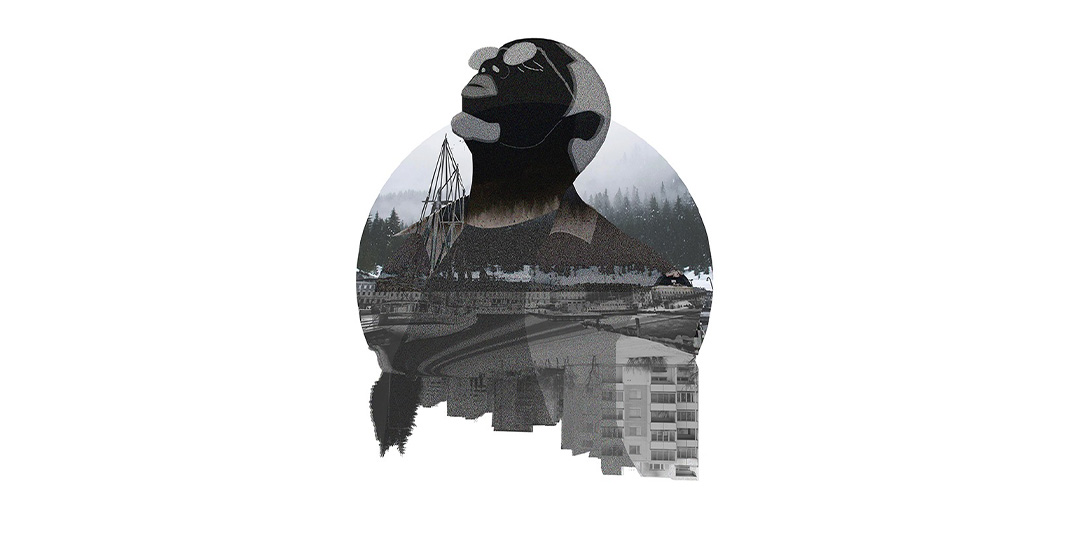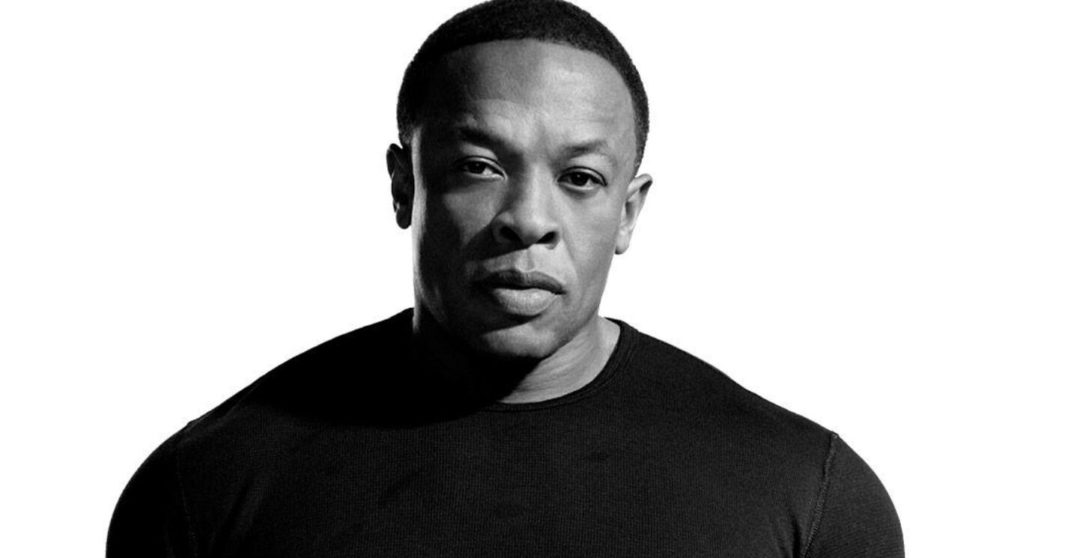“It’s already been 6 hours that I’ve been pacing back and forth, and still not a penny in my pocket” (IAM – A short cry in the night). The clock sets its rhythm in motion. The beats of the seconds feel like a drumroll piercing through my heart. In this symphony of fear, I march to the tune of machinery, revealing more of my hand. I patiently await the clock to signal the hour of departure, a fraction of a fateful second in reality.

The payment on Paypal is still pending. This money will allow me to buy a one-way ticket to Amsterdam, far from Paris, even further from Rap, and even further from my life. The pilgrimage to Dam, the Mecca for young Parisians, is both an initiatory journey and a downfall. Like a group of zombies straight out of Walking Dead, they tour the Coffee Shops, never forgetting to document it all on social media, highlighting the local peculiarities of weed and the Red Light District. There are prostitutes everywhere in Paris, but the young ones find it more exotic to see them displayed in shop windows. And Vice City knows how to play its cards. Everywhere in Amsterdam, the curious or informed tourist will find items featuring cannabis imagery, or sex shops reminding them that they are not there by chance. It’s strange, but Amsterdam, like Paris or Barcelona, has “Tourista.” This raging disease that bombards you with stereotypes about yourself as you walk along the bustling shopping avenues. In Paris, they sell Eiffel Towers and PSG jerseys (with the Eiffel Tower), while in Amsterdam, they sell an image of a strange freedom derived from the legalization of prostitution and cannabis. An apparent but real freedom for visitors. As for me, I will spend my life in front of a shop window in Amsterdam, just like the young person I have always been.
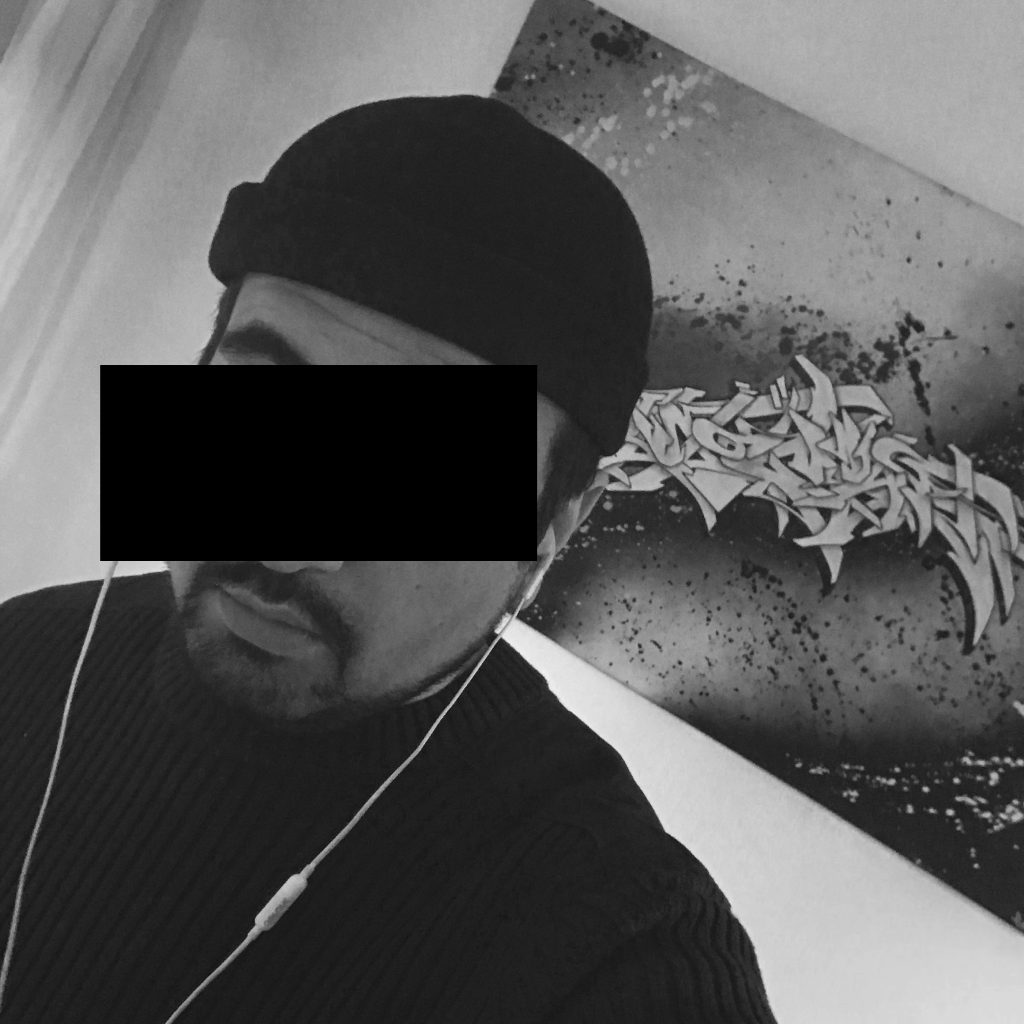
I launch my playlist on Tidal, settle in, and wait. It starts with the track “Helsinki” by Dinos, a somewhat forgotten rapper from the Parisian Rap scene. Dinos is the regret of the specialized journalist. The rapper has an exceptional flow. He dissects words with the precision of an aesthete. Yet, his deep-seated resentment of political correctness, his rejection of the too-easy legacy of the suburban tough guy, and his determination to express the age-old anguish of a half-century, have earned him a complete boycott. Youssoupha, speaking about the title of his album “Négritude” in the song of the same name, will mock us: “It would have been better if the album was called ‘Fuck Your Mother’ or ‘Drug Dealer’.”
Dinos went to Skyrock, the temple of mainstream Rap, to shout in a memorable freestyle, “Laurent Bouneau (the radio’s boss) finds my tracks too intelligent to play on the radio.” In Helsinki, he speaks of a love that crossed his threshold never to return again: “If you knew how much I hate you, you would know how much I love you.” He goes to Helsinki, to the land where “the sun never rises.” Why? It’s strange, but when a person is lost, they seek the reasons for their unhappiness elsewhere. Most of the time, it’s because of someone else.
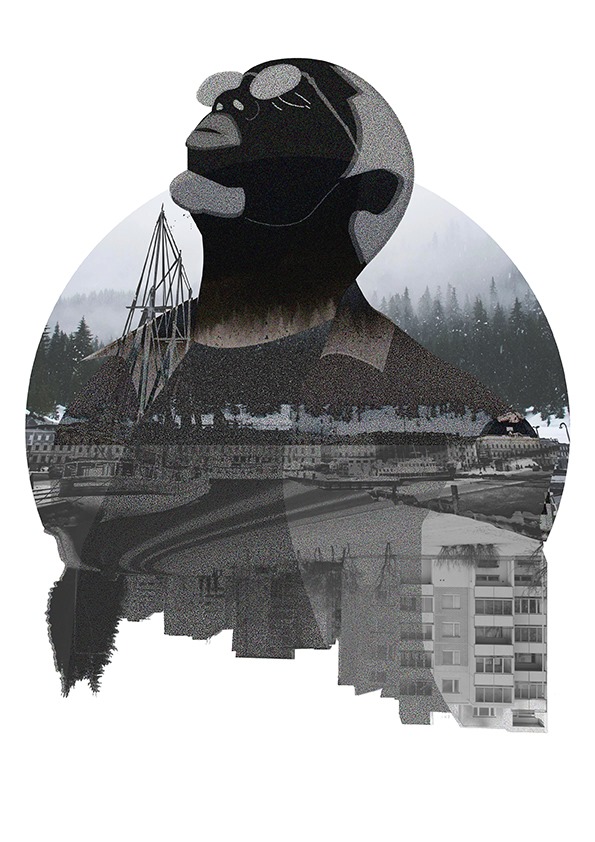
Parenthesis. Muslims since the Arab conquests, the Persians still retain some customs from the Zoroastrians. They used to celebrate the departure and return of the sun. On the last Wednesday before the first day of spring, they gather to “leap over the fire,” asking the great sun to make its comeback. A ritual that may seem somewhat comical in modern times. Witnessing a group of Iranians, intoxicated with the awful wine from the Iranian Cultural Center, jumping over large flames near the Canal Saint Martin might appear somewhat off-putting. Especially because that day is also a grand celebration for their children, who run in all directions as if the Canal’s fire had awakened the demons of marital hell.
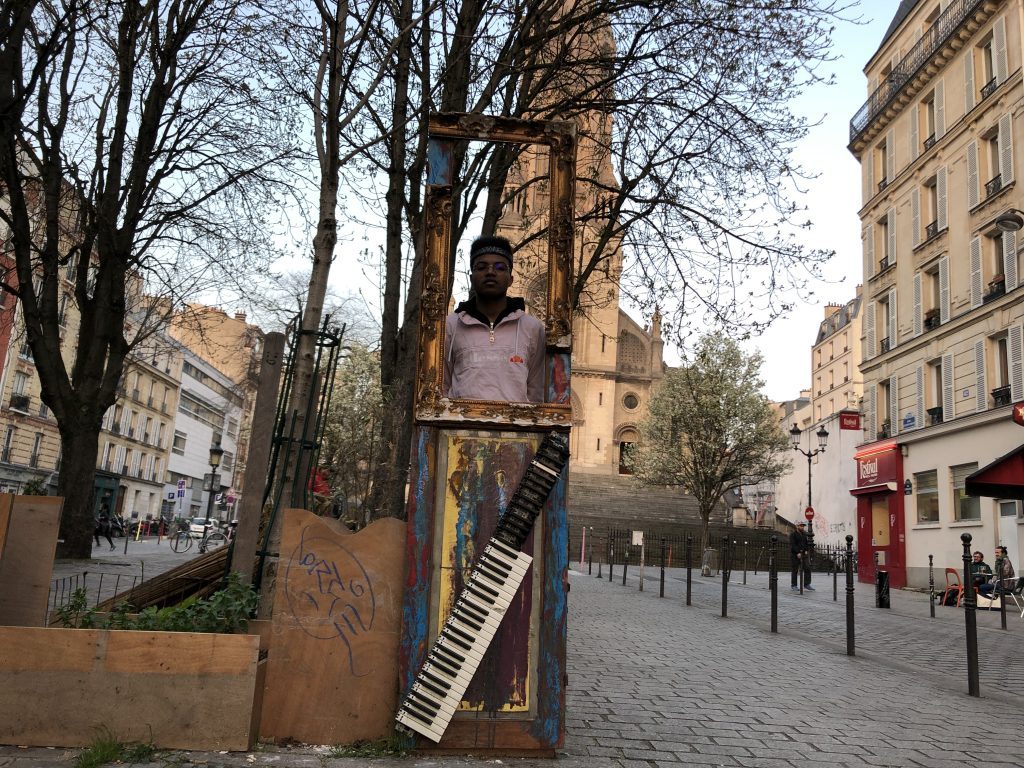
This tradition, despite the resurgence of Islam with the Islamic revolution of 1979, persists and is still respected in Tehran. Even the wine from the Pouya Center didn’t appeal to me… I gulped it down, trying not to get jostled in the midst of the obligatory Salamalek greetings. I also realized that I hardly knew anyone. Besides my poor sister, shaped by the American metal of positive attitude, who could even rejoice in the strength of her left leg if her right one were cut off, and my relatively reserved aunt who questioned whether she was truly enjoying herself, I only saw unfamiliar faces. At one point, a photographer came to greet me… I had met him in a bar in Ménilmontant. This year, I didn’t feel like I belonged. I am too Iranian to be French and too French to be Iranian. I am the child of a mixed heritage that should not have been forced upon me by political events too significant for me. So, I didn’t leap over the fire. I simply had a glass of wine and jumped into the first Uber to celebrate the sun far away from the community that I have never fully embraced.
I didn’t keep my promise to the sun, I didn’t follow that ritual. That’s probably why it offered me a terrible May in Paris, where the showers competed with my wanderings and mistakes. Never before in Paris had it rained so much in May. To add to my hangover-like mood, I was searching for light everywhere. “The absence of lights leaves me in the dark” (God Never Lies – Damso), I depart by erasing my past as if formatting a hard drive. And I head towards “the land where the sun never rises.” “Helsinki” will be the epilogue of my story in Paris, even though everything ends in Amsterdam.
I open the application once again and realize that there’s still nothing there. “Sexe, Pouvoir et Bifton” by Arsenik is the second track on the playlist. A classic among classics, it tells you about Rap. “Sexe, Pouvoir, et Bifton,” isn’t that what we all seek?
If most men are like clockwork, moving to the rhythm of that fine hand that goes from noon to midnight. If most women move forward with their eyes closed without ever asking a single question. If we are all “fuel for the machine” (Brav’ – brav against the machine). In this industry, there is no time. The artistic world, music, and especially Rap, soar above the clouds (“Above the clouds” – Gangstarr) like a forbidden city, inaccessible and impervious to some. I am an underpaid journalist in Rap, I have a communications agency in Rap… I was, I had.
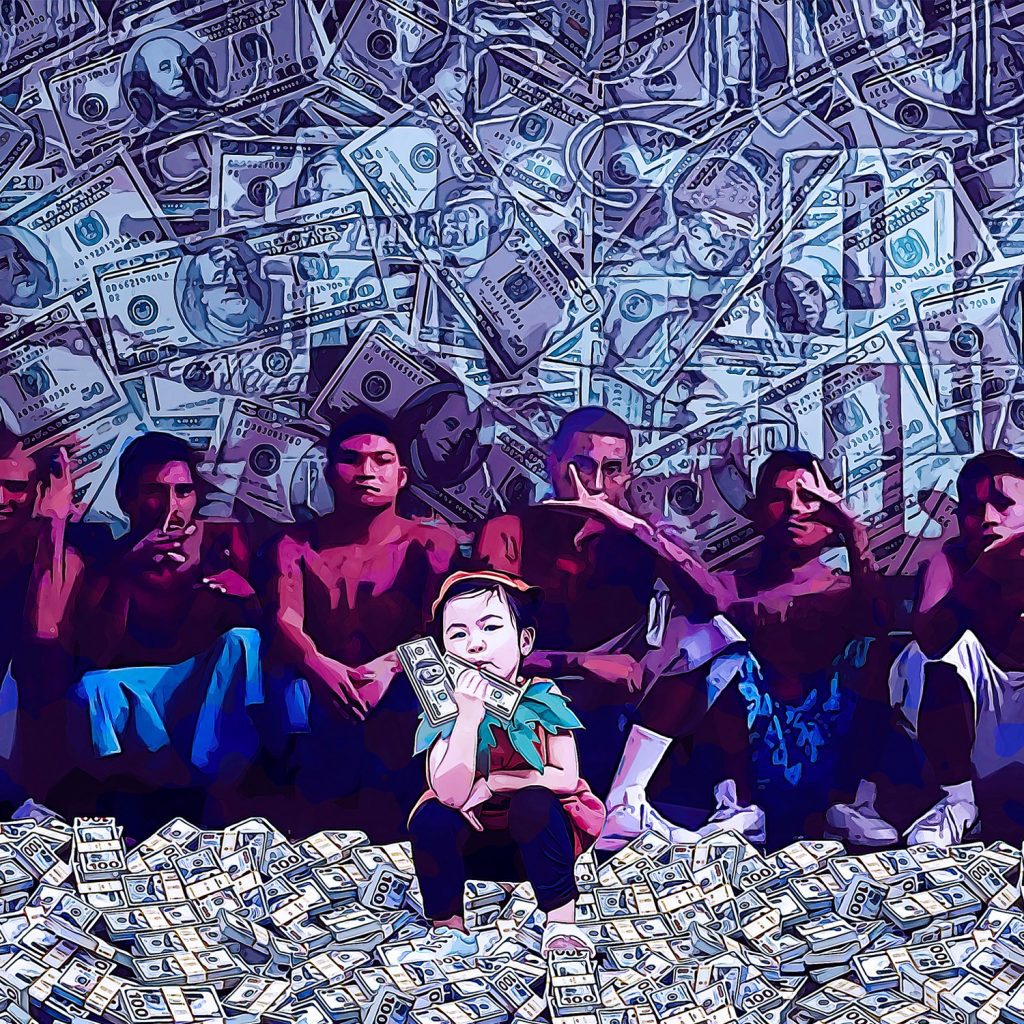
Let’s not deceive ourselves. Like Colombian football in the ’90s, French Rap is still the best way to launder drug money. It’s like an Uber, but undoubtedly more profitable. After all, “the dealer” is the main source of inspiration for French Rap. The verses of PNL, Gradur, and Booba may tell stories of “Cartels” in a Parisian Colombian fashion. The Parisian dealer may have “Balmain filled with cash” (“Maman ne le sait pas” – Ninho), but an empty head. “No Future” (Tiers Monde – “Babel”), he has the “Demon” (PNL – Luz de Luna). He uses his money to fund a “young one” who raps. If it doesn’t work out, he would have spent it elsewhere, not on magnums he no longer drinks in nightclubs. And if the young one manages to make something of himself, he’ll live peaceful days with the money he laundered in “advance” and Sacem royalties.
Time is ticking, and the money hasn’t arrived yet. I’m running out soon. The titles keep playing on the computer. I hear a current track, a song by Ninho and SCH. Pure and raw egotrip, “Prêt à Partir.” There’s nothing in this track but rage, impertinence, and the audacity of two rappers who sell more to the French than all their pop singers.
One day, I was walking in Ikea with my best client, Rackim. He is the founder of a major urban media site with a network of millions of followers, managing a significant financial flow in French Rap. We came to buy desks for the office he had opened near the Gates of Paris. He pointed out that I had forgotten a client in my promotional campaign. He told me to be careful. I replied that I was neither “Mafia nor a dealer.” He responded that, on the other hand, I was playing with drug money, bursting into laughter. Rackim is a gem, one of the few good guys you can find in this Hip Hop world.
Although it is far from being a gathering of “bloodsucking gangsters” (Kaaris – for his entire body of work), Rap has embraced the codes of the street and promotes them in the works of its artists. Rap is the testimony of the streets, the showcase of troubled neighborhoods, and for many, the dream of escaping illegality. Unfortunately, the legendary Rap journalist, Sear Get Busy, dropped a bombshell in one of the few interviews I conducted in my early days for ActuBuzz: “If Rap allowed us to escape the neighborhoods, today it imprisons more than one.”
I think of him again while listening to “On est encore là,” one of my favorite tracks by NTM. The ’90s saw the birth of urban poetry, lyrical Rap, and conscious rap. The 2010s represent the final stages that made Rap the most listened-to music in the world, surpassing rock, pop, and dance. Rap has entered everywhere, into clubs, upscale neighborhoods, and even some media outlets, even if the mainstream media never prays for Rap. The music had to become more public again, and in some cases, it rid itself of its consciousness and complexity…
The payment still hasn’t arrived… I’m starting to feel scared, staring into the void like a depressed person who has just been scolded by a psychiatrist. So, this was the downfall of this story. The end of this adventure. “Happy endings” are for bad cinema. Behind the joys lie the sorrows. Life often takes away what it has given you. After giving you life, it sets you free with death.
The playlist moves on to Niska’s “Réseaux.” He made his debut in the Generations buzz that I supported with “sweetsign.” Out of the ten artists who performed at that concert, only Niska managed to undress the girls in the front row while singing. A testament to his innate Charo talent.
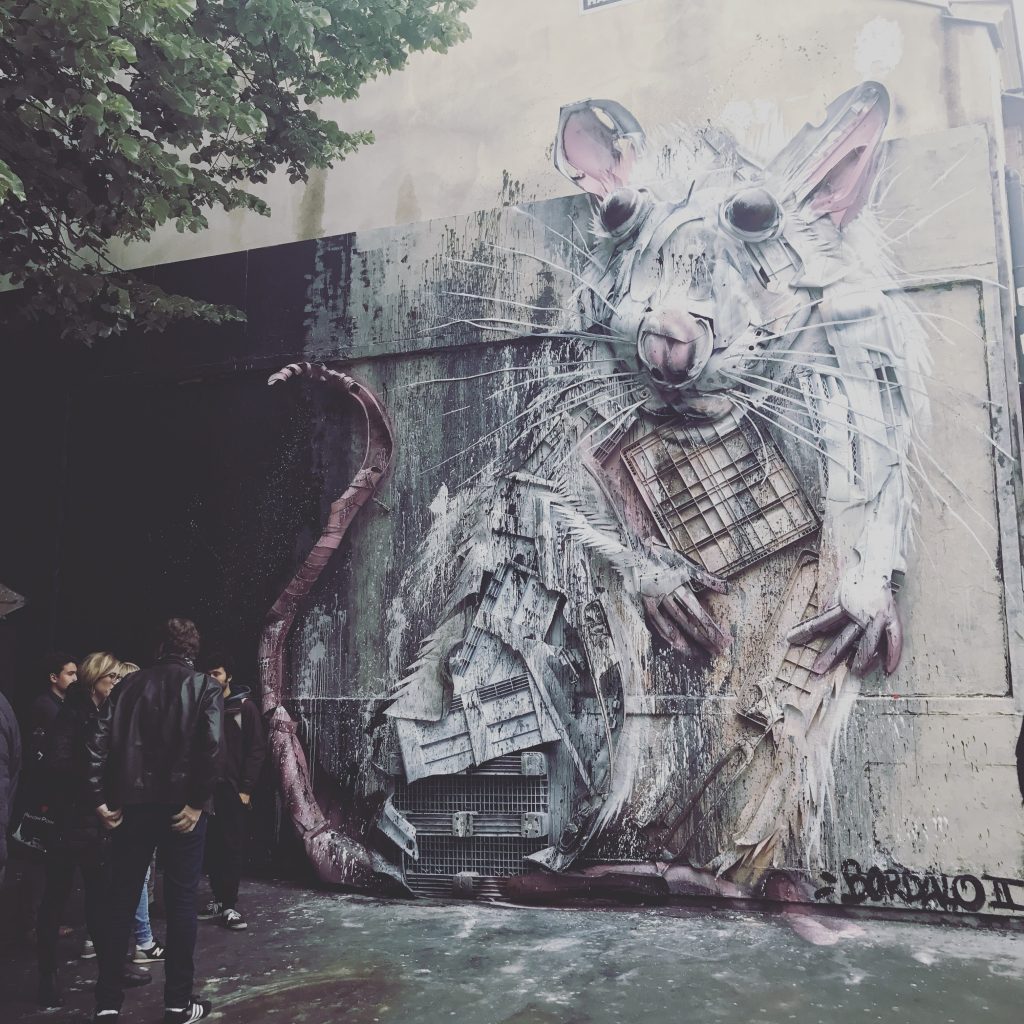
While letting out uncomfortable sighs, I stare fixedly at the concert poster I plastered on my wall. I organized this concert with La GP for Generations FM Radio. It’s the starting point of my true story.
My journey in Rap begins with La GP. A communication and production agency that never seemed to be able to keep anyone, I believe. The company was masterfully run by the boss, JR. A figure of political gangsterism, a Black Dragon from the past until today, the master of the domain manages his enterprise like a Mafia. He’s not a bad guy. What ultimately sets JR apart from those corrupt bosses who have their jeans made in Pakistan for 10 cents, economically and humanely destroying a country? What can be said about those white-collar individuals who view the African homeland as an opportunity to seize and establish their “unlimited empire” (Edgar Allan Poe – The Masque of the Red Death)? JR has revolutionized corporate politics. He refuses to pay the establishment to establish himself. In this country made of blue, white, and red, and certainly not black, it’s considered a crime of high treason.
It is here that I learned that Rap, and art in general, is a masquerade in the service of money, like everything else that is sold. Money is a Leviathan that attracts everything in its wake, perverts it, and transforms it into a manufactured product wrapped in cellophane. The product will then be reproduced in countless copies, sold, and eventually discarded. To escape his orphaned condition trapped within the Republic’s foster homes, JR refused to play by the rules of the game. If he had accepted his fate, he would probably be loading a truck in front of a jewelry store (which he would have dreamed of robbing).
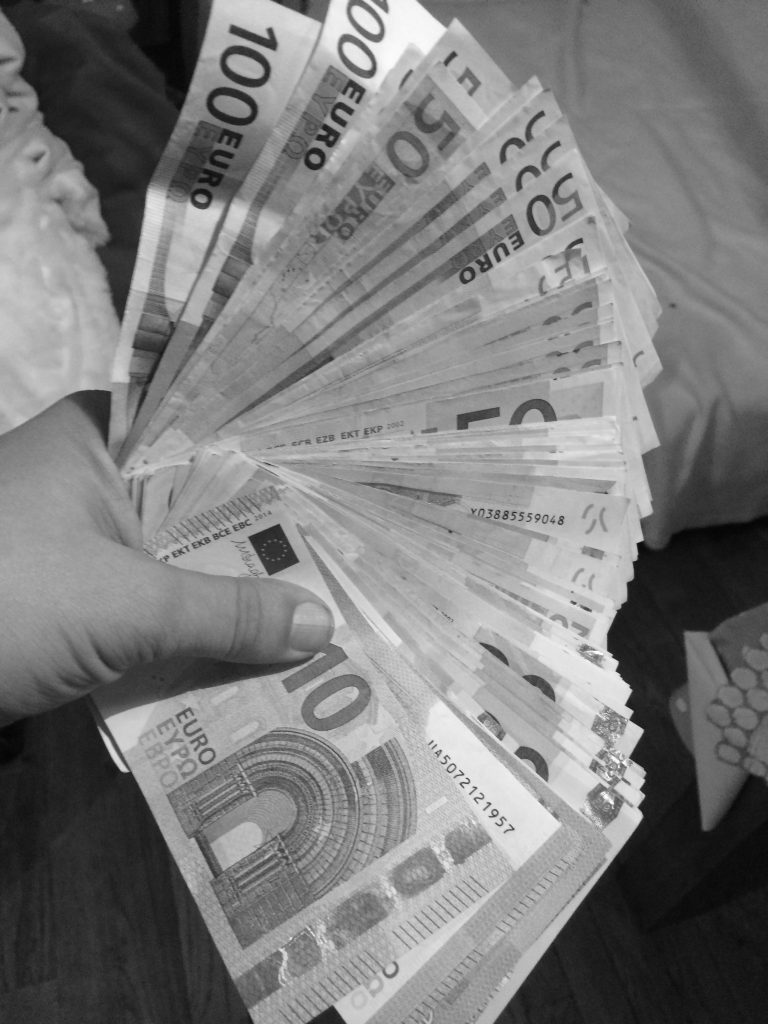
In this Rap world, there are many “brothers,” but very little brotherhood. Like the world itself, it is violent and highly competitive. Like humanity, it is enriched by exceptional encounters. The PayPal payment has just arrived. The bitcoins are ready. Only one choice remains: to steal and leave or to stay and die. Betraying the trust of the true ones to avoid being beaten by others. I carefully look at the first rap CD I ever had in my hands, “L’école du micro d’argent” (The School of Silver Mic). And I gaze through the window. It may be too late. It might have been my “Destinée” (Booba).
